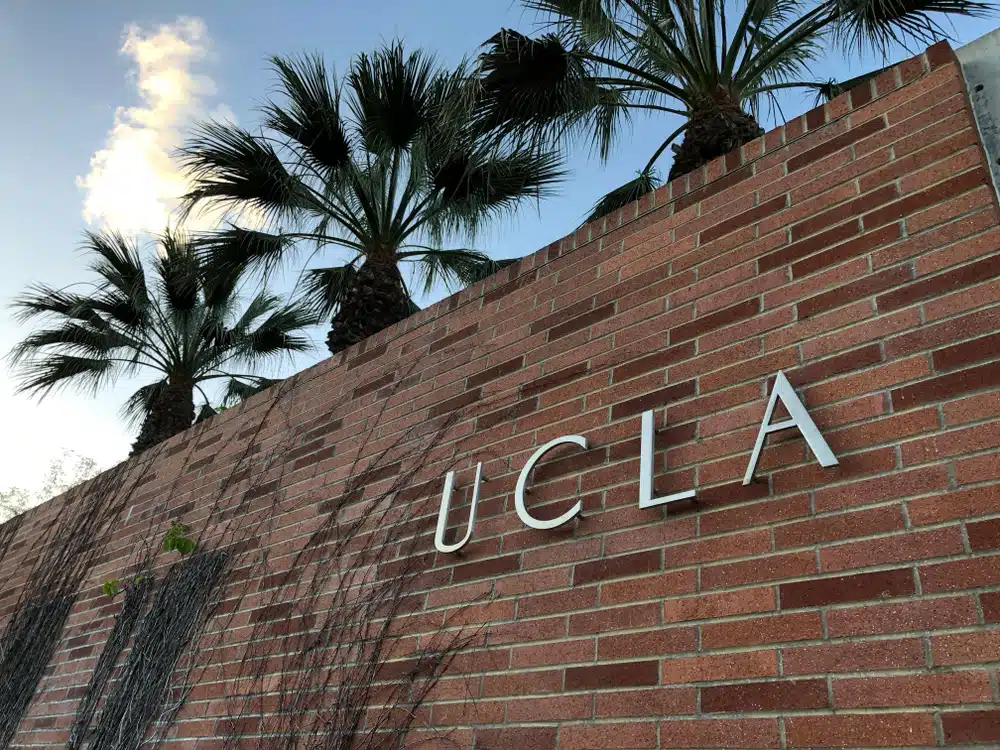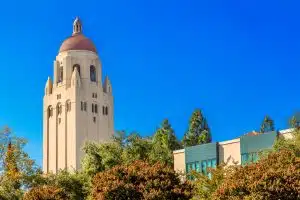The UCLA Biology Program
Founded in 1919, the University of California, Los Angeles (UCLA) stands as a beacon of educational excellence that has contributed significantly to advancing knowledge across various fields, including biology. The UCLA Biology Department, in particular, plays a crucial role in upholding this esteemed reputation.
The Biology program at UCLA is a comprehensive and dynamic program designed to foster an interdisciplinary approach to understanding life and living organisms’ fundamental concepts and complex intricacies. This program, offered through the Life Sciences division, promotes the development of essential skills and scientific literacy, providing students with a strong foundation in biological sciences.
It offers a range of courses and specializations, allowing students to tailor their studies to their specific interests and career goals. Emphasizing hands-on experience and real-world application, the program also encourages student involvement in cutting-edge research under the mentorship of internationally acclaimed faculty members.
Studying Biology at UCLA is not just about acquiring knowledge; it’s about contributing to the larger scientific discourse, innovating, and leading in biological exploration. The program equips students with the knowledge and skills necessary to succeed in a wide range of careers within the field of biology, including research, healthcare, conservation, and education, among others.
Therefore, the importance of studying biology at UCLA lies not only in the depth and breadth of the education received but also in the potential for impact and contribution to the ever-evolving scientific landscape.
UCLA Biology Program Overview
List of degrees offered
UCLA Biology Department offers an extensive range of degree programs that cater to students at different stages of their academic and professional careers. At the undergraduate level, students can pursue a Bachelor’s Degree in Biology, which provides a comprehensive foundation in biological concepts and theories and practical laboratory skills.
The UCLA Biology program is designed to allow students to explore the wide breadth of biological sciences while allowing them to specialize in areas of interest. For those looking to delve deeper into the field, the Master’s Degree in Biology offers a blend of advanced coursework and research, providing a more specialized and in-depth understanding of particular subfields within biology. The program also prepares students for research, industry, or academia careers.
At the highest level, the Doctorate in Biology is a research-intensive program encouraging students to develop and conduct original, independent research. This program is designed for those who aspire to contribute new knowledge to the field of biology, whether in academia, research institutions, or industry. Across all degree levels, UCLA’s biology programs emphasize critical thinking, problem-solving, and applying knowledge to real-world biological problems.
Interdisciplinary Programs
Interdisciplinary programs at UCLA’s Biology Department offer an innovative and integrative approach to learning that transcends traditional boundaries of academic disciplines. Recognizing the interconnectedness of various fields of study, these programs are designed to broaden students’ understanding of biological sciences by incorporating perspectives, theories, and methodologies from other areas such as chemistry, physics, mathematics, computer science, and even social sciences.
For instance, the Bioinformatics program integrates biology, computer science, and data analysis to understand complex biological systems. In contrast, the Systems Biology program combines aspects of molecular biology, biochemistry, and physics to understand how biological systems function.
Another notable interdisciplinary program is Human Biology and Society, which offers a unique blend of biological science and humanities, focusing on the social and ethical implications of biological research and discoveries.
Through these interdisciplinary programs, students are equipped with a comprehensive understanding of biology crucial in solving complex, real-world problems spanning multiple disciplines. This approach fosters innovative thinking and prepares students for diverse research, industry, education, healthcare, and policy-making career paths.
Unique features of the Biology program at UCLA
The UCLA Biology program distinguishes itself through several unique features contributing to a robust and comprehensive educational experience. First, the program’s interdisciplinary approach to biological sciences allows students to gain broad exposure to various fields within biology while offering opportunities to specialize in areas of individual interest. This approach fosters a holistic understanding of the interconnected nature of life sciences.
Second, the program’s emphasis on research is notable, with extensive opportunities for students to engage in cutting-edge research under the mentorship of world-renowned faculty. This allows students to apply their knowledge practically, contribute to the broader scientific community, and potentially co-author published papers.
Third, UCLA’s location in a biodiversity hotspot offers unique fieldwork opportunities for students interested in ecology and environmental biology. Finally, the program’s extensive collaboration with other departments, research centers, and hospitals within and outside UCLA provides students with unparalleled learning opportunities, networking, and career development opportunities.
These collaborative efforts result in diverse internships, job placements, and study-abroad programs that provide practical experience and global exposure. These unique features of UCLA’s Biology program provide an enriching, dynamic, and comprehensive learning environment that equips students to become skilled and impactful biologists.
UCLA Curriculum for Biology
Core Courses
The core courses in the UCLA Biology program are designed to provide strong foundational knowledge in biological sciences, preparing students for more specialized study and research in later years. They typically cover the fundamental principles of biology, ranging from cellular and molecular biology to ecology and evolutionary biology.
Key courses include “Introductory Life Science,” “Genetics, Evolution, and Ecology,” “Cell and Molecular Biology,” and “Physiology.” In addition to these biology-focused courses, students also study integral support subjects like chemistry, physics, and mathematics, which aid in understanding complex biological systems and phenomena.
These core courses provide a comprehensive grounding in the biological sciences and emphasize the development of key skills, such as critical thinking, data analysis, and scientific communication. Integrating lectures with laboratory work also ensures that students have ample opportunity to apply theoretical knowledge to practical contexts, fostering a more in-depth and hands-on understanding of biology.
Specializations
The UCLA curriculum for biology offers a diverse array of specializations that allow students to delve deeper into their areas of interest within the broader biological sciences field. The Molecular Biology specialization equips students with an in-depth understanding of the chemical bases of biological activity, exploring topics such as gene expression, cell function, and the intricate workings of DNA, RNA, and proteins.
The Ecology and Evolutionary Biology specialization provides an understanding of the relationships between organisms and their environments, addressing significant topics like biodiversity, adaptation, and the process of evolution. In the Microbiology, Immunology, and Molecular Genetics specialization, students investigate the mechanisms of microbial life and the human immune system, offering essential insights for addressing health-related issues like infectious diseases and immunological disorders.
The Integrative Biology and Physiology specialization offers a comprehensive understanding of how different biological systems interact and function in organisms, encompassing areas from cellular physiology to system-level analysis of organisms.
Finally, the Human Biology and Society specialization represents an interdisciplinary approach combining biological science with social science perspectives, exploring biological research and discoveries’ social, cultural, and ethical implications. Each of these specializations provides students with focused training and prepares them for various career paths or further study in these subfields of biology.
Capstone or thesis requirements
As a pivotal part of the UCLA Biology program, capstone or thesis requirements allow students to apply their knowledge and skills to a substantial research project, showcasing their ability to conduct independent research and make meaningful contributions to their field of study. Undergraduate students, especially those in the Honors program, typically complete a capstone project in their final year, often involving conducting original research under faculty guidance.
Capstone projects can take many forms, including literature reviews, laboratory or field research, or other projects demonstrating mastery of a biology topic. For Master’s and Doctoral students, the program requires a thesis or dissertation, which involves conducting extensive original research on a specific topic within biology.
This involves hypothesis development, data collection, analysis, and interpretation, culminating in a written document that must be defended before a committee of faculty members. These requirements ensure that students gain hands-on experience in research, develop critical thinking and communication skills, and are prepared for careers in research, academia, or any other profession requiring a high level of scientific literacy and skill.
Research opportunities
UCLA’s Biology program is deeply committed to research, providing numerous opportunities for students at all levels to engage in cutting-edge scientific investigations. The department boasts a range of research labs, each led by faculty members leading experts in their respective fields, from molecular biology to ecology.
Undergraduate students can participate in research through independent study courses, summer research programs, or as part of their capstone projects. They can work under the guidance of faculty mentors, gaining hands-on experience in experimental design, data collection and analysis, and scientific communication. For graduate students, research is a fundamental component of their studies, typically culminating in a master’s thesis or doctoral dissertation.
They may conduct independent research, contribute to ongoing projects in faculty labs, or collaborate on interdisciplinary research initiatives with other departments or institutions. The university also hosts regular seminars and symposiums, where students can present their research findings to peers and faculty, fostering an environment of intellectual exchange and collaborative learning.
UCLA Faculty for Biology
Overview of faculty achievements
The faculty at UCLA Biology Department is a distinguished group of scholars widely recognized for their contributions to biological sciences. They include award-winning researchers, published authors, and fellows of esteemed scientific societies. The faculty’s achievements span various biological disciplines, from pioneering work in molecular genetics to significant contributions in ecology and evolutionary biology.
Many faculty members have been awarded prestigious honors for their research, including memberships in the National Academy of Sciences, the American Association for the Advancement of Science, and other high-profile academic organizations. They have also received numerous grants from prominent funding bodies, such as the National Institutes of Health and the National Science Foundation, underscoring the relevance and impact of their research.
Additionally, many faculty are recognized for their excellence in teaching and mentorship, having received awards for their pedagogical innovation and commitment to student success. These collective achievements reflect the department’s commitment to scientific discovery, innovation, and academic excellence.
Notable faculty members in the Biology department
The UCLA Biology department boasts several notable faculty members who have achieved significant recognition in their respective fields. Though I do not have information about specific faculty members after September 2021, up until that point, several professors had gained noteworthy recognition.
For instance, Dr. Tracy Johnson, known for her research on RNA biology, received the prestigious Howard Hughes Medical Institute Professor grant for her innovative approaches to undergraduate science education. Dr. Robert Wayne, a leading researcher in evolutionary biology, has significantly contributed to conservation genetics and genomics.
Another faculty member, Dr. Matteo Pellegrini, is recognized for his work in the computational analysis of genome biology, providing insights into epigenetics and genomics. The contributions of these faculty members, along with many others, have significantly advanced the field of biological sciences and enriched the academic experience for students at UCLA.
Student-faculty ratio and its benefits
A favorable student-faculty ratio is a notable strength of UCLA’s Biology program, with the university consistently maintaining smaller class sizes that allow for personalized instruction and interaction. This low student-faculty ratio facilitates a supportive and conducive learning environment where students can receive individualized attention and guidance from faculty members.
It enables professors to know their students better, tailor their teaching to students’ specific needs, and provide timely feedback. Furthermore, this close interaction fosters mentorship relationships, which can lead to research collaboration, academic advice, and career guidance.
A low student-faculty ratio also encourages dynamic and engaged classroom discussions, promoting a deeper understanding of the material. This personalized learning environment cultivates a sense of community within the department, enhancing students’ academic and social experiences. Ultimately, the low student-faculty ratio at UCLA contributes to a high-quality education, fostering academic achievement and personal growth among UCLA Biology students.
UCLA Facilities and Resources
Description of laboratory facilities
UCLA’s Biology department is equipped with state-of-the-art laboratory facilities that enable cutting-edge research and provide hands-on learning experiences for students. These UCLA facilities are designed to support a wide range of biological research, including molecular and cellular biology, microbiology, genetics, ecology, and physiology.
Labs are equipped with advanced scientific equipment such as PCR machines, electron microscopes, flow cytometers, and more, which allow students and faculty to conduct intricate experiments and research. In addition to research laboratories, the department features teaching labs specifically designed for instructional use.
These labs offer a conducive environment for students to conduct experiments, learn practical skills, and apply theoretical concepts they learn in their classes. The department also houses several specialized facilities, such as the greenhouse for plant biology research, the aquatic research facility for marine biology studies, and the vivarium for animal research.
Libraries and research resources
The UCLA campus is home to numerous libraries and research resources that serve as valuable intellectual hubs for biology students. Notably, the Louise M. Darling Biomedical Library, one of the largest medical libraries in the United States, provides an extensive collection of books, journals, databases, and other materials related to life and health sciences.
This library offers a comprehensive range of biological science resources and spaces for study and collaboration. Besides, the UCLA Library system also provides access to digital resources, including an impressive range of electronic books, online databases, and e-journals, ensuring students can access essential academic materials from anywhere.
Furthermore, UCLA Biology students can use specialized research tools such as EndNote for managing bibliographies and various data analysis software. In addition to these resources, the UCLA Library also offers various services, including research consultations, workshops, and assistance with data management and scholarly publishing. These libraries and research resources significantly support the academic and research needs of the biology students at UCLA.
Access to research centers and institutes
UCLA Biology students have access to many research centers and institutes that expand their learning and research opportunities beyond the classroom. These include entities such as the Molecular Biology Institute, the Institute for Quantitative and Computational Biosciences, and the UCLA Ecology and Evolutionary Biology Department’s Mildred E. Mathias Botanical Garden, each contributing unique resources and expertise to students’ education.
These centers often bring together researchers from various disciplines, fostering interdisciplinary collaboration and promoting innovative approaches to complex biological problems. By participating in these centers and institutes, students can gain exposure to various research topics, methodologies, and perspectives and often have the opportunity to work alongside leading scientists in their field.
Access to these institutions also facilitates networking and professional development opportunities, as students can attend seminars, workshops, and other events that help them connect with the broader scientific community. Such experiences can significantly enrich students’ academic journey, providing practical skills and insights to shape their future career paths.
As you understand more about UCLA Biology Program, you should have an easier time in deciding if you will enter this university. Wherever you might want to enter, you can get help with AdmissionSight with the help of our world-class guidance. With the help of experts, choosing the best university that suits you best shouldn’t be hard with the help of AdmissionSight. You can talk to us today to get started.









































